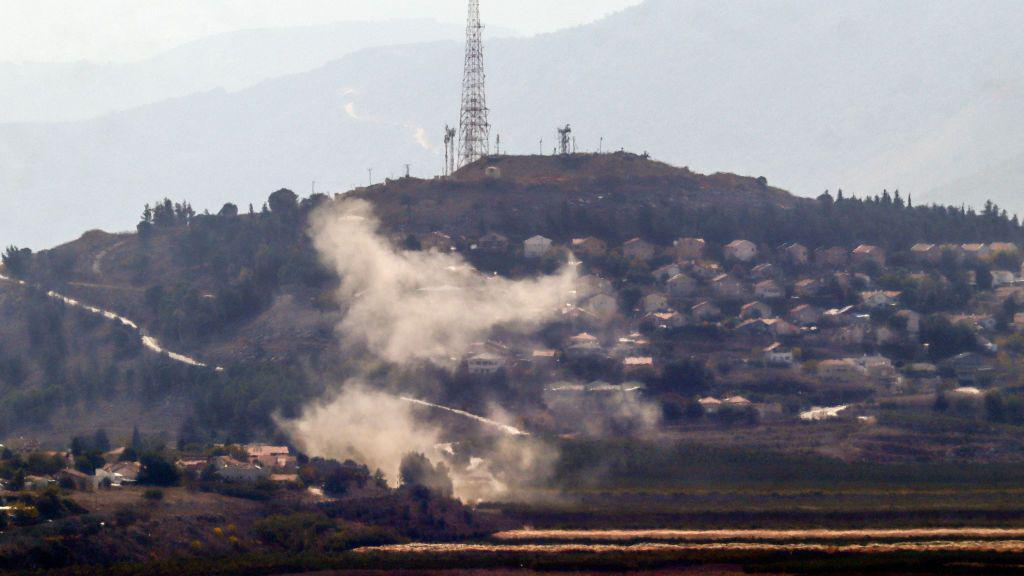In a significant escalation of violence, two separate rocket attacks launched by Hezbollah within a single day resulted in the deaths of seven individuals in northern Israel, marking the deadliest day of cross-border strikes in recent months. The attacks particularly targeted agricultural areas near the Israel-Lebanon border, where a 46-year-old Israeli farmer and four Thai agricultural workers lost their lives when rockets struck near Metula, a town situated just across from Lebanon. Subsequently, another attack claimed the lives of an Israeli woman and her son as they were picking olives near Kibbutz Afek, southwest of Metula. The day’s violent events underscored the ongoing conflict in this volatile border region, aggravated by Hezbollah’s recent military actions aimed at supporting Palestinians during heightened tensions following the outbreak of war in Gaza.
The farmer killed in the first attack was identified as Omer Weinstein, a 46-year-old father of four from Kibbutz Dafna, while the other fatalities were four foreign workers, all Thai nationals. Reports indicate that they were in the field under circumstances where the Israeli military had allowed access, despite the area being designated a closed military zone. The military had established this zone prior to launching a ground operation in Lebanon aimed at dismantling Hezbollah’s military capacity. In the second attack, 55 rockets were reportedly fired towards various regions in Israel, including the Western Galilee, with some intercepted by defense systems, while others landed in open areas, causing casualties mainly in agricultural locations.
The tragic incident at Kibbutz Afek involved a 60-year-old woman and her 30-year-old son, Mina and Karmi Hasson, who were struck by a rocket while gathering olives. Emergency services responded swiftly, though both were pronounced dead after attempts at resuscitation. A civilian in the area also sustained minor injuries, highlighting the indiscriminate nature of the violence affecting not only agricultural workers but also families going about their daily lives. Amid the chaos, accounts of the aftermath revealed the dire conditions faced by emergency responders, who encountered devastation upon arrival at the scene.
Amidst these missile attacks, an Irish military base in southern Lebanon was also indirectly affected when a rocket, presumably targeting Israel, landed in an unoccupied area of Camp Shamrock. While no casualties occurred, the incident raised alarms regarding the safety of international peacekeeping forces stationed in Lebanon. The Irish military has noted the incident as completely unacceptable, stressing the need for all parties involved to uphold the safety of peacekeepers under international law. Meanwhile, the background context of these incidents features ongoing discussions for a potential ceasefire as U.S. special envoys met with Israeli Prime Minister Benjamin Netanyahu.
Netanyahu’s remarks following the attacks indicated that Israel’s primary objective involves ensuring the safety of its citizens and countering threats from Hezbollah. The Israeli military has heightened its offensives against Hezbollah following increasing tensions and retaliatory threats linked to the conflict in Gaza. Reports of significant casualties on both sides illustrate the impact of this extended engagement, with over 2,800 fatalities recorded in Lebanon amid intensified counterstrikes from Israel. The humanitarian ramifications have been profound, with Lebanese authorities asserting that more than 1.2 million individuals have been displaced as a result of the ongoing conflict.
As reported, the Israeli military has continued operations inside southern Lebanon, targeting Hezbollah positions consistently and conducting airstrikes across the country. Concurrently, the humanitarian crisis deepens, with the Lebanese health ministry documenting numerous casualties among emergency responders as air campaigns escalate. Strikes targeting vehicles and gathering points have claimed the lives of several paramedics, which remains a contentious issue, especially as accusations persist regarding Hezbollah’s operational tactics, including the alleged use of ambulances for military purposes. The cycles of retaliation and counter-retaliation suggest a grim outlook for civilians caught in the crossfire, emphasizing the urgent need for international diplomatic interventions to mitigate ongoing hostilities.

